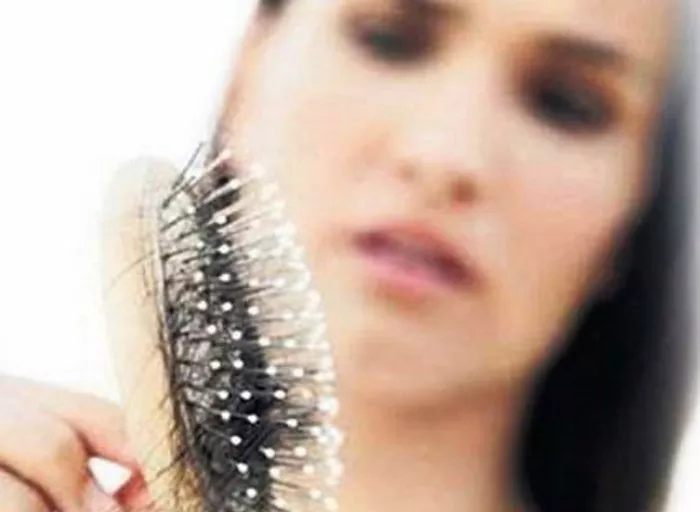Hair loss can be a distressing symptom of thyroid disorders, affecting both men and women. Thyroid conditions such as hypothyroidism and hyperthyroidism can disrupt the normal functioning of the thyroid gland, leading to hormonal imbalances that contribute to hair thinning and loss. Fortunately, there are strategies and treatments available that can help manage thyroid-related hair loss and promote hair regrowth. In this article, we will explore ten effective approaches that have been instrumental in halting thyroid-related hair loss for many individuals.
1. Balanced Thyroid Hormone Levels:
Achieving and maintaining balanced thyroid hormone levels is crucial for managing thyroid-related hair loss. For individuals with hypothyroidism, synthetic thyroid hormone medication such as levothyroxine can help restore hormone levels to normal. Conversely, medications or treatments to regulate thyroid hormone levels are necessary for those with hyperthyroidism. Consulting with an endocrinologist or healthcare provider to monitor thyroid function and adjust medication dosages as needed is essential for controlling hair loss.
2. Nutrient-Rich Diet:
A well-balanced diet rich in essential nutrients is vital for supporting overall health and promoting hair growth. Nutrients such as iron, zinc, selenium, and vitamin D play key roles in maintaining healthy hair follicles and preventing hair loss. Incorporating foods such as lean proteins, leafy greens, nuts, seeds, and whole grains can help ensure adequate intake of these nutrients. Additionally, omega-3 fatty acids found in fish, flaxseeds, and walnuts have anti-inflammatory properties that may benefit individuals with thyroid-related hair loss.
3. Supplements for Hair Health:
In addition to obtaining nutrients from food sources, supplements can be beneficial for supporting hair health in individuals with thyroid disorders. Biotin, also known as vitamin B7, is a popular supplement believed to promote hair growth and strengthen hair follicles. Other supplements such as iron, zinc, and selenium may also be recommended to address specific deficiencies associated with thyroid dysfunction. However, it is essential to consult with a healthcare provider before starting any new supplements to ensure they are safe and appropriate for individual needs.
4. Stress Management Techniques:
Chronic stress can exacerbate thyroid dysfunction and contribute to hair loss. Implementing stress management techniques such as meditation, deep breathing exercises, yoga, or mindfulness can help reduce stress levels and support overall well-being. Engaging in regular physical activity, getting adequate sleep, and prioritizing self-care activities can also contribute to stress reduction and may help mitigate thyroid-related hair loss.
5. Scalp Massage and Stimulation:
Scalp massage and stimulation techniques can improve blood circulation to the scalp, which may promote hair growth and prevent further hair loss. Massaging the scalp with essential oils such as rosemary, peppermint, or lavender oil can enhance the effectiveness of the massage while providing additional benefits for hair health. Incorporating scalp massage into a regular hair care routine can be a simple yet effective strategy for individuals experiencing thyroid-related hair loss.
6. Gentle Hair Care Practices:
Harsh hair care practices such as frequent heat styling, chemical treatments, and tight hairstyles can damage hair follicles and exacerbate hair loss in individuals with thyroid disorders. Opting for gentle hair care practices such as air-drying hair, using heat protectant products when styling, and avoiding tight hairstyles that pull on the hair can help minimize further damage and support healthy hair growth. Additionally, using sulfate-free and mild shampoos and conditioners can help maintain scalp health and reduce irritation.
7. Regular Scalp Exfoliation:
Regular scalp exfoliation can help remove buildup of dead skin cells, excess oil, and product residue that can clog hair follicles and impede hair growth. Using a gentle scalp exfoliating scrub or brush once or twice a week can help promote a healthy scalp environment conducive to hair growth. However, it is essential to avoid over-exfoliating, as this can cause irritation and damage to the scalp.
8. Prescription Medications and Treatments:
In some cases, prescription medications and treatments may be necessary to address thyroid-related hair loss. Topical minoxidil, commonly known as Rogaine, is an FDA-approved medication for promoting hair growth and is often recommended for individuals experiencing hair loss due to thyroid disorders. Other treatments such as low-level laser therapy (LLLT) or platelet-rich plasma (PRP) therapy may also be considered for individuals with persistent or severe hair loss. Consulting with a dermatologist or hair specialist can help determine the most appropriate treatment options based on individual needs and preferences.
9. Hormone Balancing Supplements:
Certain supplements may help support hormone balance and alleviate symptoms associated with thyroid disorders, including hair loss. Adaptogenic herbs such as ashwagandha, rhodiola, and holy basil have been traditionally used to support adrenal function and hormone balance. Additionally, herbs such as saw palmetto and stinging nettle root may help regulate levels of dihydrotestosterone (DHT), a hormone implicated in hair loss. However, it is essential to consult with a healthcare provider before starting any new supplements, especially if taking other medications or supplements.
10. Patience and Persistence:
Managing thyroid-related hair loss often requires patience and persistence, as it may take time to see noticeable improvements in hair growth. Consistently implementing lifestyle changes, following prescribed treatments, and addressing underlying thyroid dysfunction are essential for achieving long-term results. It is important to remain patient and optimistic throughout the process, as gradual improvements in hair health are achievable with dedication and perseverance.
In conclusion, thyroid-related hair loss can be a challenging symptom to manage, but with the right approach and strategies, it is possible to halt hair loss and promote hair regrowth. By addressing underlying thyroid dysfunction, adopting a nutrient-rich diet, incorporating supplements, practicing stress management techniques, and implementing gentle hair care practices, individuals can effectively manage thyroid-related hair loss and support overall hair health. Consulting with healthcare professionals and dermatologists can provide personalized guidance and treatment options to address individual needs and optimize outcomes. With patience, persistence, and proactive management, individuals can regain confidence and enjoy healthier, fuller hair despite thyroid disorders.


